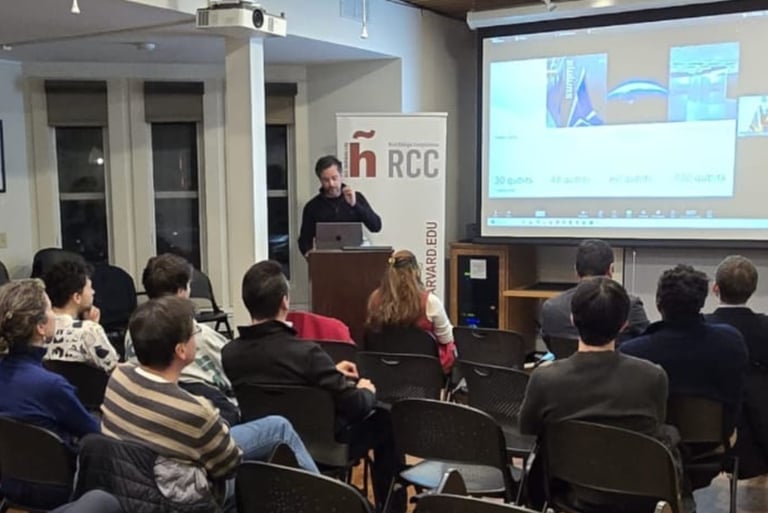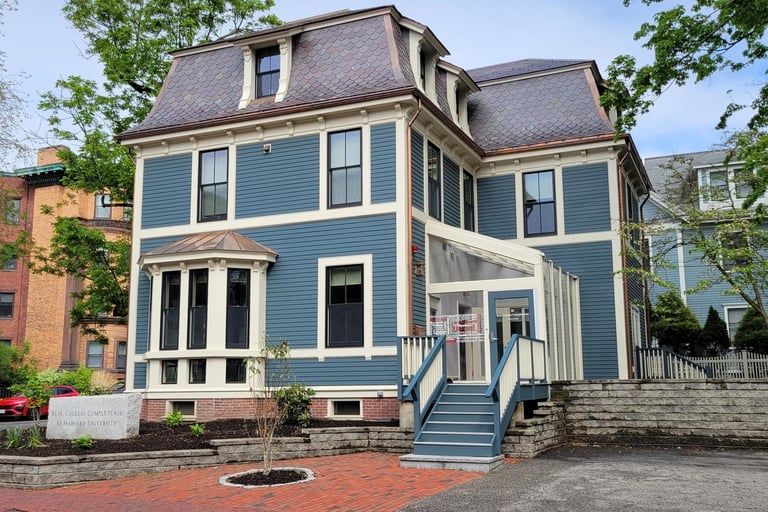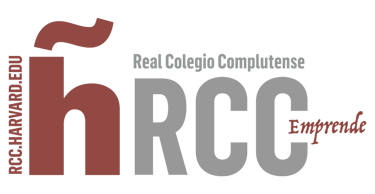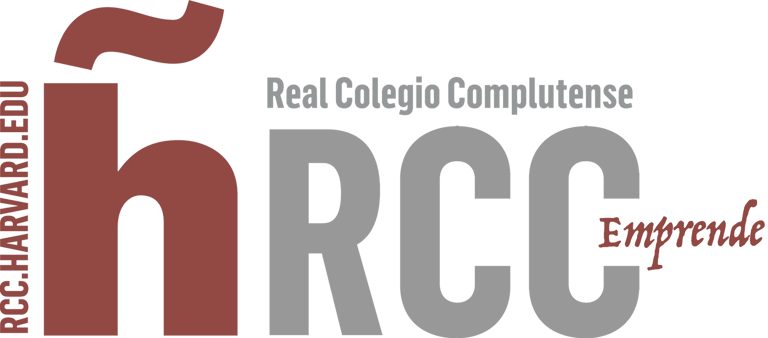Education
At the Real Colegio Complutense at Harvard, we are developing educational programs in entrepreneurship designed to empower students, researchers, and early-stage founders from our member universities. These programs offer specialized training, mentorship, and exposure to the Harvard–MIT innovation ecosystem, combining academic excellence with real-world impact.
Our flagship program is Entrepreneurship in Action


A hands-on journey through the playbook of successful international entrepreneurs at Harvard and MIT.
Over the course of five immersive days, participants will step into the world of real founders who turned bold ideas into thriving ventures within the Harvard-MIT innovation ecosystem. Through ten in-depth case studies, taught by the entrepreneurs themselves, participants will gain actionable insights, tested strategies, and a deep understanding of what it takes to succeed in the U.S. market. This is not theory — it’s the real playbook, built on experience, and designed to inspire and equip the next generation of global founders.
Entrepreneurship in Action: Case-Based Learning
NEXT SESSION - Cambridge, MA
Monday, May 4 – 8, 2026
Each case study session is built around a real-world story of an entrepreneur who launched or scaled a venture within the U.S. market, often through the Harvard-MIT ecosystem. Sessions follow a structured, discussion-based format inspired by the Harvard Business School method. Participants receive a short written case in advance and come prepared to engage in guided analysis, peer dialogue, and problem-solving. The entrepreneur featured leads the session, offering firsthand insights, answering questions, and sharing behind-the-scenes reflections. These sessions are designed to foster critical thinking, practical learning, and rich conversation around the real challenges and decisions faced by founders navigating new markets.
The program brings together case studies from a wide range of industries, based on the real experiences of Spanish-speaking founders within the Harvard–MIT ecosystem. Each case is designed to deliver practical, immediately applicable insight—whether your focus is building in the U.S. market or transferring proven approaches back home.


Participants engage in a total of twelve in-depth case discussions, each carefully selected to illustrate real entrepreneurial challenges and strategic decision-making in practice.
Each case session lasts 1.5 hours, allowing sufficient time to explore context, debate key inflection points, and examine outcomes in detail. Sessions are led personally by the entrepreneur behind the case, giving participants direct access to first-hand insight into how critical decisions were made under real constraints.
In addition to the classroom experience, each day includes a visit to a distinguished institution within the broader innovation ecosystem, offering participants a closer look at how leading organizations operate and collaborate in practice.
The program is intentionally limited to a small cohort to ensure meaningful interaction, thoughtful discussion, and genuine exchange between participants, entrepreneurs, and institutional hosts.


Who is this program for?
Entrepreneurs
This program is designed for entrepreneurs who want to engage in deep, experience-based conversations with founders who have faced challenges similar to those they may encounter in the future. The discussions focus on solutions that can be applied across different markets and industries, emphasizing transferable decision-making frameworks rather than isolated outcomes.
Participants have the opportunity to explore real hardships, critical choices, and lessons learned directly with entrepreneurs who have built and scaled companies within the Harvard–MIT ecosystem. These conversations go beyond success stories, examining uncertainty, failure, and adaptation in real operating environments.
Beyond learning, the program fosters meaningful relationships with peers and mentors. This close interaction allows participants to build a strong professional network and become part of one of the world’s most dynamic and influential innovation ecosystems.
University leaders
For directors of innovation centers, technology-transfer units, professors, and university leadership, the program offers direct exposure to the epicenter of university-driven entrepreneurship. Participants gain insight into how leading institutions structure innovation programs, support student ventures, and translate research into successful spin-offs. The cases and institutional visits provide practical tools, governance models, and best practices that can be adapted to strengthen entrepreneurial education and commercialization efforts within their own universities.
Corporate leaders and innovation teams
The program is also tailored to corporate professionals seeking to better understand how innovation happens in entrepreneurial settings and how those methods can be applied within established organizations. Participants explore how startups move quickly, manage uncertainty, and make resource-constrained decisions, and learn how to adapt entrepreneurial frameworks to drive internal innovation, new product development, and organizational agility.


We are actively developing our case portfolio by co-writing each case together with the entrepreneur who lived the experience. This approach ensures accuracy, depth, and a direct connection to real decision-making processes across multiple industries.
As of 2026, the RCC case portfolio is built primarily around entrepreneurs of Spanish background operating within the Harvard–MIT ecosystem. We believe this shared cultural and professional proximity creates a sense of closeness for participants, enabling learning that feels relevant and grounded rather than distant or abstract.
Our cases span a wide range of industries, reflecting the diversity of entrepreneurial paths and innovation models. As the portfolio continues to grow, we will be able to offer industry-specific programs tailored to particular sectors.
At the same time, we believe that a generalist program is especially powerful for understanding core entrepreneurial dynamics—how ventures are formed, how technology transfer occurs, how teams make decisions under uncertainty, and how strategies evolve across markets. This foundation allows participants to transfer insights across industries and apply them effectively in different contexts.
For May 2026, the program features a selected group of entrepreneurs, including David Lagares, who has raised more than $50 million for his biotech ventures; Santiago Ibáñez, a serial entrepreneur and AI expert; and Jordi Albó, a technologist and founder of an MIT Media Lab–based deep-tech consulting firm.
Participants will receive the digital case studies in April, allowing time for preparation ahead of the program. A printed copy of all program materials will be provided upon arrival at Harvard University.
Price: Regular price 4.500 EUR. Early registration 3.000 EUR. This fee covers all sessions, visits, course materials, coffee breaks, and one reception lunch/dinner


Application Timeline
Applications open on January 10th, 2026, and close on April 15th, 2026.
Early-bird pricing applies to applications submitted by March 10th, 2026.
How to Apply
Submit your application by sending your CV or LinkedIn profile to rcc@fas.harvard.edu
with the subject line: “Entrepreneurship in Action Application.”
Admission Decision and Payment
RCC will send an acceptance letter within three business days, including the U.S.-based RCC bank account details required for payment.
Confirming Your Place
Your place in the program will be held for 15 days from the date of the acceptance email.
Enrollment becomes official once the payment receipt has been submitted.
Admissions Process
Admissions are processed on a rolling basis and will remain open until all available places have been filled.




ORGANIZATION
Área de emprendimiento e innovación
Real Colegio Complutense at Harvard University
© 2025. All rights reserved.
